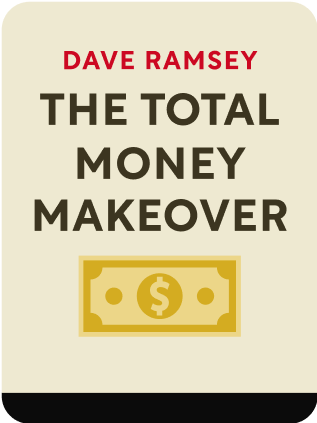

This article is an excerpt from the Shortform book guide to "The Total Money Makeover" by Dave Ramsey. Shortform has the world's best summaries and analyses of books you should be reading.
Like this article? Sign up for a free trial here .
What is the Dave Ramsey student loan debt ideas? How does Total Money Makeover suggest paying for college instead of loans?
According to Dave Ramsey, student loan debt is too often taken on unnecessarily. It should be a last resort.
Read more about Dave Ramsey, student loan debt, and how to pay for college.
Dave Ramsey: Student Loan Debt
While most people think college is important, most don’t save for their children’s college education, and they end up taking out huge loans (which people think is “normal”). According to Dave Ramsey, student loan debt has been normalized in this way.
Save for college and pay cash. The most effective vehicles for saving for college are an ESA (Educational Savings Account), which is like an IRA for education, and a state 529 plan.
College tuition increases faster than inflation, at about 8% versus 4%, so when you save for college, you need to factor in tuition inflation. There are tuition prepayment plans, but they just break even with inflation.
You can do much better with an ESA funded in a growth-stock mutual fund—like an IRA, it will grow tax-free. Here’s how it compares to a prepaid tuition plan:
- If you invest $2,000 a year from your child’s birth through age 18 in a prepaid plan, you’d have $72,000 for tuition.
- An ESA in mutual funds returning 12% would generate $126,000 tax-free. It would take only $166.67 a month to save $2,000 a year, and in 18 years, you’d have enough to send your child to an expensive college. But you could still probably afford a typical college if you started investing when the child turned 8.
If you need more, also consider a state 529 plan, which similarly allows you to invest money tax-free for your child’s education. There are several types of 529 plans—stay away from the “life phase” (poor returns) and the “fixed portfolio” plans (too restrictive). The best option is a “flexible” plan that allows you to move your investment within a family of funds to get better performance. According to Dave Ramsey, student loan debt is a last resort and you should try planning and having smarter investments. Or used the tips below for lowering costs.
A Financially Smart Approach to College
According to Dave Ramsey, student loan debt is often taken on because of the pressure of attending college. While society may overemphasize college, higher education is important and an element of success. Here are three steps for making a smart decision about college:
- Research the cost of attending college at various sizes and types of schools: Remember, a degree from an elite school matters less than it used to. It’s irrational to incur $75,000 debt for a degree, when the same one from a state school reflects the same knowledge and can be funded out of pocket without going into debt.
- Pay cash: Don’t take out loans for college; there are ways to fund college without loans. We’ve come to accept student loans as normal, believing that you can’t go to college without loans. Students today graduate with an average $25,000 to 27,000 in loan debt. Once you have college loans, they’re difficult to get rid of, so don’t get started with them.
- Control college expenses: Too many student loans are used to pay for an expensive off-campus standard of living. It’s usually more economical to live on campus and eat in the cafeteria.
Whatever you do, don’t fall for the myth that the only way to afford college is by getting loans. As stated by Dave Ramsey, student loan debt is not necessary.

———End of Preview———
Like what you just read? Read the rest of the world's best book summary and analysis of Dave Ramsey's "The Total Money Makeover" at Shortform .
Here's what you'll find in our full The Total Money Makeover summary :
- The 7 steps to achieving financial stability (you'll love #7)
- A fool-proof plan for becoming debt-free
- How myths about debt and money are crippling your financial health






